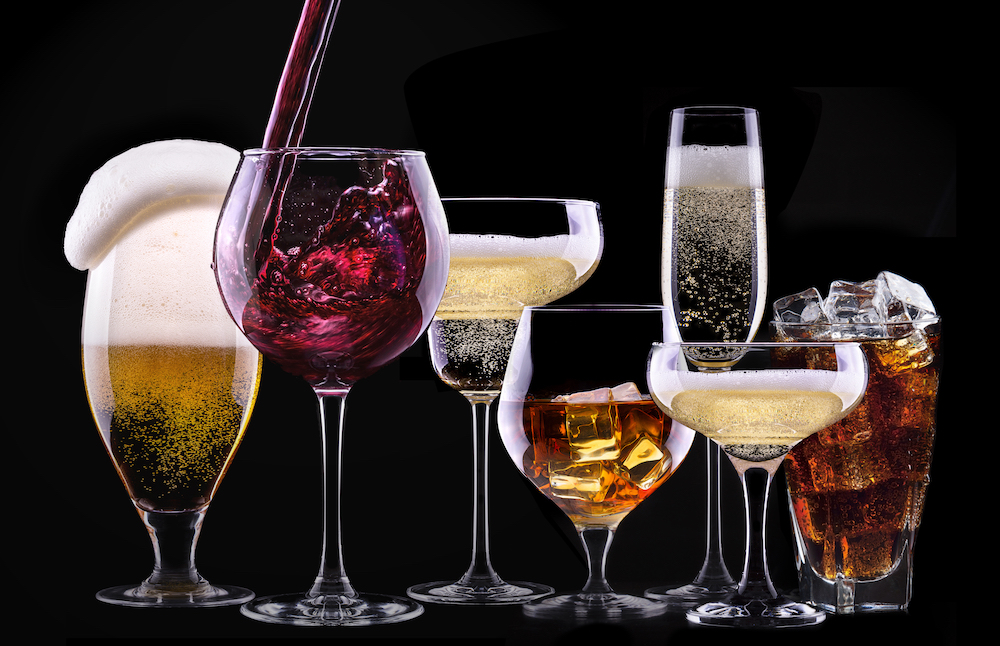From Wild to Mild: How Different Types of Alcohol Affect Your Mood

Get the world’s most fascinating discoveries delivered straight to your inbox.
You are now subscribed
Your newsletter sign-up was successful
Want to add more newsletters?

Delivered Daily
Daily Newsletter
Sign up for the latest discoveries, groundbreaking research and fascinating breakthroughs that impact you and the wider world direct to your inbox.

Once a week
Life's Little Mysteries
Feed your curiosity with an exclusive mystery every week, solved with science and delivered direct to your inbox before it's seen anywhere else.

Once a week
How It Works
Sign up to our free science & technology newsletter for your weekly fix of fascinating articles, quick quizzes, amazing images, and more

Delivered daily
Space.com Newsletter
Breaking space news, the latest updates on rocket launches, skywatching events and more!

Once a month
Watch This Space
Sign up to our monthly entertainment newsletter to keep up with all our coverage of the latest sci-fi and space movies, tv shows, games and books.

Once a week
Night Sky This Week
Discover this week's must-see night sky events, moon phases, and stunning astrophotos. Sign up for our skywatching newsletter and explore the universe with us!
Join the club
Get full access to premium articles, exclusive features and a growing list of member rewards.
The holidays are full of tasty treats and festive cocktails — but instead of Christmas cheer, some alcoholic beverages may cause other, less pleasant feelings, a new study from England suggests.
In the study, researchers examined how consuming different types of alcohol, such as beer, spirits and wine, could affect a person's emotions when drinking at home or out in public. Their findings suggest that spirits, which have higher alcohol concentrations, are frequently associated with feelings of aggression.
“Understanding emotions associated with alcohol consumption is imperative to addressing alcohol misuse, providing insight into what emotions influence drink choice between different groups in the population,” the researchers wrote in the study. [7 Ways Alcohol Affects Your Health]
For the study, the researchers used data from the Global Drug Survey, which is the world’s largest online survey of legal and illicit drug and alcohol use among adults. The survey includes questions on alcohol consumption and the feelings associated with drinking beer, spirits and red or white wine when at home or out. The emotions analyzed in the survey included energized, relaxed, sexy, confident, tired, aggressive, ill, restless and tearful.
Specifically, the researchers looked at responses from roughly 30,000 survey participants between ages 18 and 31. The participants were from 21 countries and had drunk each of the specified types of alcohol within the past year, according to the study.
The results showed that different types of alcohol can trigger different emotions. Spirits, for example, were more likely to elicit negative feelings than all the other types of alcohol, the researchers said.
But red wine was linked to more positive feelings: About 53 percent of the survey participants said they felt relaxed after drinking red wine. Roughly 50 percent of the participants also associated this feeling with drinking beer. Spirits, however, were the least likely to be associated with relaxation, according to the study.
Get the world’s most fascinating discoveries delivered straight to your inbox.
"For centuries, the history of rum, gin, vodka and other spirits has been laced with violence," study co-author Mark Bellis, a professor of public health at Bangor University in the U.K., said in a statement. "This global study suggests even today consuming spirits is more likely to result in feelings of aggression than other drinks."
But aggression wasn't the only emotion associated with sipping spirts. The researchers also found that spirits were associated with more positive emotions than beer or wine, including feelings of energy, confidence and sexiness.
The researchers found that survey responses largely differed based on level of education, country of origin and age. For example, participants between ages 18 and 24 were more "likely to associate any type of alcohol with feelings of confidence, energy and sexiness when drinking away from home," the researchers said.
Gender and level of alcohol-dependency also seemed to have an effect on participants' emotions. Compared with men, women were more like to associate their feelings with different types of alcohol.
The one exception, however, was aggression. Men were "significantly more likely to associate feelings of aggression with all types of alcohol, as were those categorized as heavy/dependent drinkers, who were six times more likely to do so than low risk drinkers," the researchers said. (A questionnaire was used to assess a person's level of alcohol dependency.)
Also, dependent drinkers were five times more likely to say they felt energized from alcohol than "low-risk" drinkers, suggesting that dependent drinkers rely on alcohol to generate the positive emotions they associate with alcohol, the researchers added. ("Low-risk" drinkers refers to drinkers who were less-dependent on alcohol.)
Although the study doesn't provide explicit evidence linking certain emotions to different types of alcohol — in other words, it doesn't prove that a specific type of alcohol causes a specific emotion — it demonstrates the effect that drinking beer, wine or spirits can have on a person's feelings. The researchers also noted that several other factors could influence feelings elicited by alcohol, such as advertising, when and where alcohol is drunk, and the alcohol content of different drinks.
The findings were published today (Nov. 21) in the journal BMJ Open.
Originally published on Live Science.
 Live Science Plus
Live Science Plus











